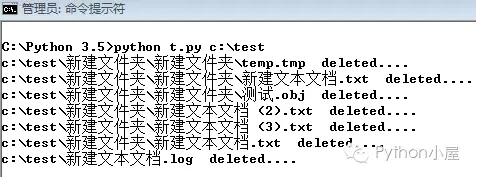详解Python对JSON中的特殊类型进行Encoder
Python 处理 JSON 数据时,dumps 函数是经常用到的,当 JSON 数据中有特殊类型时,往往是比较头疼的,因为经常会报这样一个错误。
自定义编码类
#!/usr/bin/env python # -*- coding:utf-8 -*- # Author: wxnacy(wxnacy@gmail.com) import json from datetime import datetime USER_DATA = dict( id = 1, name = 'wxnacy', ts = datetime.now() ) print(json.dumps(USER_DATA))
Traceback (most recent call last): File "/Users/wxnacy/PycharmProjects/study/python/office_module/json_demo/dumps.py", line 74, in <module> dumps_encoder() File "/Users/wxnacy/PycharmProjects/study/python/office_module/json_demo/dumps.py", line 68, in dumps_encoder print(json.dumps(USER_DATA)) File "/Users/wxnacy/.pyenv/versions/3.6.0/Python.framework/Versions/3.6/lib/python3.6/json/__init__.py", line 231, in dumps return _default_encoder.encode(obj) File "/Users/wxnacy/.pyenv/versions/3.6.0/Python.framework/Versions/3.6/lib/python3.6/json/encoder.py", line 199, in encode chunks = self.iterencode(o, _one_shot=True) File "/Users/wxnacy/.pyenv/versions/3.6.0/Python.framework/Versions/3.6/lib/python3.6/json/encoder.py", line 257, in iterencode return _iterencode(o, 0) File "/Users/wxnacy/.pyenv/versions/3.6.0/Python.framework/Versions/3.6/lib/python3.6/json/encoder.py", line 180, in default o.__class__.__name__) TypeError: Object of type 'datetime' is not JSON serializable
原因在于 dumps 函数不知道如何处理 datetime 对象,默认情况下 json 模块使用 json.JSONEncoder 类来进行编码,此时我们需要自定义一下编码类。
#!/usr/bin/env python
# -*- coding:utf-8 -*-
# Author: wxnacy(wxnacy@gmail.com)
class CustomEncoder(json.JSONEncoder):
def default(self, x):
if isinstance(x, datetime):
return int(x.timestamp())
return super().default(self, x)
定义编码类 CustomEncoder 并重写实例的 default 函数,对特殊类型进行处理,其余类型继续使用父类的解析。
#!/usr/bin/env python
# -*- coding:utf-8 -*-
# Author: wxnacy(wxnacy@gmail.com)
import json
from datetime import datetime
class CustomEncoder(json.JSONEncoder):
def default(self, x):
if isinstance(x, datetime):
return int(x.timestamp())
return super().default(self, x)
USER_DATA = dict(
id = 1, name = 'wxnacy', ts = datetime.now()
)
print(json.dumps(USER_DATA, cls=CustomEncoder))
# {"id": 1, "name": "wxnacy", "ts": 1562938926}
最后整合起来,将类使用 cls 参数传入 dumps 函数即可。
使用 CustomEncoder 实例的 encode 函数可以对对象进行转码
#!/usr/bin/env python # -*- coding:utf-8 -*- # Author: wxnacy(wxnacy@gmail.com) print(CustomEncoder().encode(datetime.now())) # 1562939035
在父类源码中,所有的编码逻辑都在 encode 函数中, default 只负责抛出 TypeError 异常,这就是文章开始报错的出处。
#!/usr/bin/env python
# -*- coding:utf-8 -*-
# Author: wxnacy(wxnacy@gmail.com)
def default(self, o):
"""Implement this method in a subclass such that it returns
a serializable object for ``o``, or calls the base implementation
(to raise a ``TypeError``).
For example, to support arbitrary iterators, you could
implement default like this::
def default(self, o):
try:
iterable = iter(o)
except TypeError:
pass
else:
return list(iterable)
# Let the base class default method raise the TypeError
return JSONEncoder.default(self, o)
"""
raise TypeError(f'Object of type {o.__class__.__name__} '
f'is not JSON serializable')
def encode(self, o):
"""Return a JSON string representation of a Python data structure.
>>> from json.encoder import JSONEncoder
>>> JSONEncoder().encode({"foo": ["bar", "baz"]})
'{"foo": ["bar", "baz"]}'
"""
# This is for extremely simple cases and benchmarks.
if isinstance(o, str):
if self.ensure_ascii:
return encode_basestring_ascii(o)
else:
return encode_basestring(o)
# This doesn't pass the iterator directly to ''.join() because the
# exceptions aren't as detailed. The list call should be roughly
# equivalent to the PySequence_Fast that ''.join() would do.
chunks = self.iterencode(o, _one_shot=True)
if not isinstance(chunks, (list, tuple)):
chunks = list(chunks)
return ''.join(chunks)
单分派装饰器处理对象
CustomEncoder 如果处理的对象种类很多的话,需要写多个 if elif else 来区分,这样并不是不行,但是不够优雅,不够 pythonic
根据对象的类型不同,而做出不同的处理。刚好有个装饰器可以做到这点,它就是单分派函数 functools.singledispatch
#!/usr/bin/env python
# -*- coding:utf-8 -*-
# Author: wxnacy(wxnacy@gmail.com)
from datetime import datetime
from datetime import date
from functools import singledispatch
class CustomEncoder(json.JSONEncoder):
def default(self, x):
try:
return encode(x)
except TypeError:
return super().default(self, x)
@singledispatch # 1
def encode(x):
raise TypeError('Unencode type')
@encode.register(datetime) # 2
def _(x):
return int(x.timestamp())
@encode.register(date)
def _(x):
return x.isoformat()
print(json.dumps(dict(dt = datetime.now(), d = date.today()), cls=CustomEncoder))
# {"dt": 1562940781, "d": "2019-07-12"}
1 使用 @singledispatch 装饰 encode 函数,是他处理默认类型。同时给他添加一个装饰器构造函数变量。
2 `@encode.register () 是一个装饰器构造函数,接收需要处理的对象类型作为参数。用它装饰的函数不需要名字, _` 代替即可。
最后提一点, json 也可以在命令行中使用
$ echo '{"json": "obj"}' | python -m json.tool
{
"json": "obj"
}
参考链接
以上就是本文的全部内容,希望对大家的学习有所帮助,也希望大家多多支持【听图阁-专注于Python设计】。
